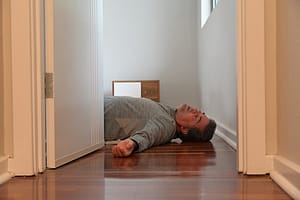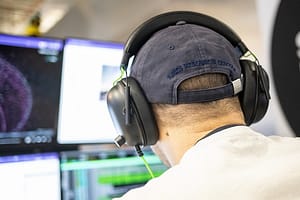As the UK’s public transportation networks expand and become more densely populated, the potential for bus accidents is increasingly high. While it’s unlikely most of us will ever experience a bus crash, it’s important to understand what to do if the worst should happen. Accidents can be terrifying and confusing, so having an idea of the steps to take can help reduce stress in a time of crisis.
With that in mind, this post serves as a step-by-step guide to equip you with the knowledge to help you should you find you find yourself in this stressful situation.
Immediately after the UK bus crash: Take action
In the event of a bus crash, it’s essential for passengers to take immediate action if they are physically able.
1. Check for injuries
First, you should check yourself for injuries. You might assume that you would immediately know whether or not you’re injured but in stressful and high-adrenaline situations, it’s not always that straightforward.
If it’s safe to do so, you should check on other passengers but do not put yourself at risk of further injury and so creating a more difficult situation for emergency services.
2. Call the emergency services
Contacting the police after a bus crash is essential even if it doesn’t seem necessary. Their involvement and investigations may be able to determine who was at fault for the accident and aid in dispute resolution, as well as secure compensation from insurance companies for medical expenses or other damages caused by the accident. Additionally, proving documentation of official reports will make it easier for the passenger’s lawyer to get effective results in court cases or settlement negotiations if it ever comes down to that.
3. Collect evidence
In order to take legal action or sue the driver and/or company, it is important that you collect evidence that can help to prove your claim.
Potential evidence includes:
- photos of damages
- contact details of other passengers
- notes of relevant details such as weather conditions, speed limits
- the make/model of the bus
Many of these may seem to be details that you’ll remember but be aware that some may get lost in the shock after a crash so it is best to document them as soon as possible. However, due care must be taken when taking photos. It can be easy to overlook dangerous objects while focusing on taking photos which can result in further injury. Therefore, it is advisable that photos be taken from a distance if safety allows – in particular identifying any foreign objects such as debris in the road which may have caused or contributed to the event.
If there were several people on the bus then it can be useful to share contact details. This can be of major assistance to your legal team in the case of a future claim against the bus company.
4. Seek medical and legal help
Following the accident, it’s essential to call on the experience and advice of professionals within both the medical and legal sectors.
Medical treatment
If you are a passenger in a UK bus crash, it is important to seek medical treatment as soon as possible. Even if you feel fine following the crash, it is wise to be assessed for any potential injuries and issues that may arise after the incident. In some cases, injuries can take days or weeks to show themselves after an accident. Therefore, if you do experience pain or notice swelling in any area of your body at any point following the crash – it is best to seek medical attention as soon as possible. Being proactive about seeking help could make all the difference regarding diagnosis, treatment, and legal proceedings down the line.
Compensation for injuries and damages
If you were a passenger in a bus crash that caused injury or damages, seek compensation for them as soon as possible. As a passenger, you may be eligible to file a claim for losses you sustained due to the accident and resulting injuries. Depending on the circumstances, you may also be able to get financial restitution for medical bills, lost wages, and other expenses related to the accident. Additionally, depending on who was responsible for the crash, it may be possible to seek additional damages through punitive measures. It is important to remember that the process of seeking compensation can be long and complicated, especially with regard to cases involving multiple parties. You should consult an experienced personal injury lawyer to help you create your case and represent you throughout the process of seeking compensation. Furthermore, when being offered a settlement amount after an initial evaluation of your case by an insurance company or other respondent in the lawsuit, do not sign any documents agreeing to such an amount until you have consulted with a personal injury attorney who can help ensure that the amount accurately reflects your level of damages and injury.
5. Keep a diary
Keeping a diary of events after an accident is an important step in ensuring that you have a clear and accurate record of what happened. This can be extremely useful in a variety of different circumstances, including when making a claim for compensation, when giving evidence in a court of law, or simply when trying to understand the events that led to the accident and how they have affected you.
By keeping a diary, you can make sure that you capture all of the details of the accident and its aftermath, including the date and time of the accident, the circumstances leading up to it, and any physical, emotional, or psychological symptoms you may be experiencing as a result. You can also use the diary to keep track of any medical treatment or therapy you receive, as well as any communication you have with the insurance company or any other relevant parties.
By having all of this information recorded in one place, you will be better prepared to handle any challenges that may arise in the aftermath of the accident.
Key points
While we all hope that we will never be involved in a bus crash, sadly road accidents do happen every day. Understanding the steps to take will provide some reassurance should the worst-case scenario ever happen.






Leave a Comment